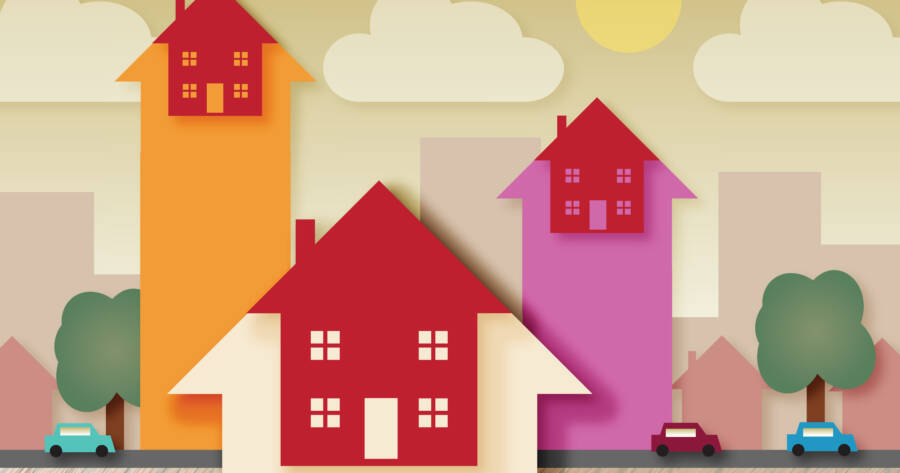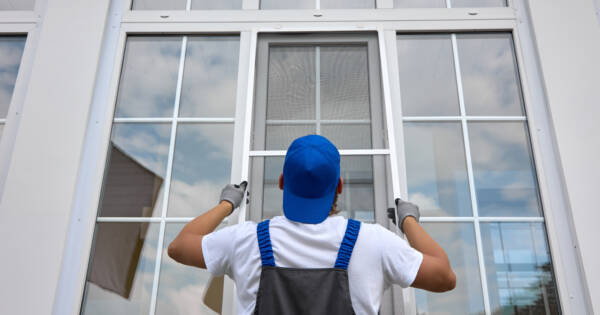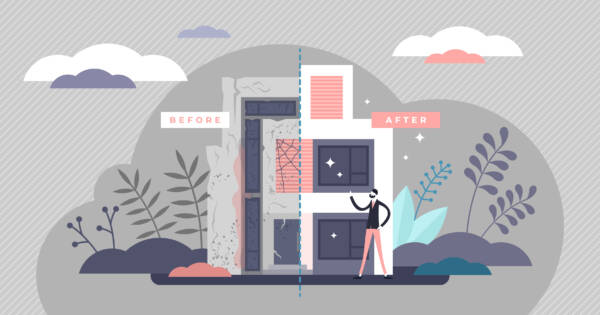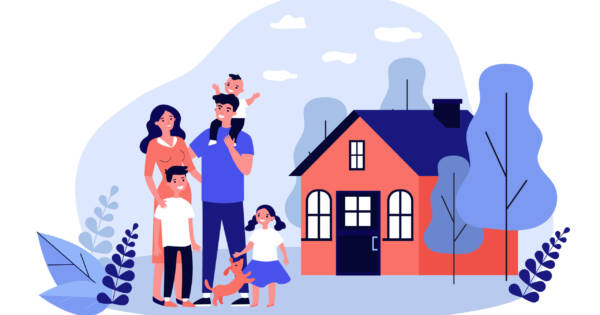The COVID-19 economy has brought on some pretty wild market fluctuations. Stocks collapsed during the early stages of the pandemic, then quickly recovered. Oil crashed, then soared. Commodity indexes surged as inflation took hold in 2021. Perhaps most glaring of all is the state of the U.S. real estate market. Prices are exploding, bidding wars are commonplace, and buyers are scrambling to scoop up properties they have not even seen in person.
For some, the situation in 2021 is eerily reminiscent of what happened leading up to the 2008 housing crisis. Fears of a real estate market bubble are real, and expert opinion is divided as to whether a crash is looming. This article examines the factors driving the red-hot U.S. housing market. It also evaluates the underlying factors stoking fears of a potential correction, offering insights on whether we are in a bubble bound to burst.
What Is Happening To The Housing Market?
According to Realtor.com’s monthly national real estate report for June 2021, the median list price for a U.S. home hit $385,000. That marks a 12.7% rise in median list prices compared to June 2020. In real estate terms, that kind of increase marks a major upswing.
The report also addressed the question of inventory. When realtors talk about inventory, they mean the number of houses available for sale. Realtor.com measures inventory in terms of new monthly listings. Its June 2021 report noted a 43.1% decline in inventory compared to June 2020.
That represents a steep drop, but not as steep as the drop we saw in May. In May 2021, inventory plummeted by 50.9% compared to the same month in 2020. As we will see, these inventory trends are a key reason prices have been rising at such a fast clip.
Realtor.com also closely analyzes real estate trends in major U.S. metro areas. June 2021 saw median list prices in major cities rise at a slower clip of 5.3% compared to the previous June. Home inventories in major metro areas also fell 40.5% in June 2021. This followed a 49.4% decrease in May 2021 when comparing both months to their 2020 counterparts.
In short: home inventory is low, prices are rising quickly, and properties are selling fast. The typical home spent only 37 days on the market in June 2021 before finding a buyer. In June 2020, that average was 72 days — nearly double its current clip.
Market Forces Driving Current Trends
A complex, interconnected web of market forces are responsible for current trends in the U.S. real estate market. They have combined to create a seller’s market of historic proportions.
Specifically, four major factors are driving rising prices. Bidding wars are becoming common, especially in lower-density suburbs. Here’s why:
COVID-19
The ongoing pandemic has emerged as a major catalyst for the housing market. With larger segments of the labor force working from home, people’s needs have changed. Many of them are seeking more space, and homes with rooms easily used as offices.
At the same time, lockdowns have left people stuck at home far more often than many would like. As such, buyers generally want larger, more comfortable properties. They give families more room. Households with multiple people working from home also want to avoid tripping over each other all day.
Low Inventory
The concept of supply and demand has a well-established history in economics. In essence, the principle states that prices inevitably rise when demand for a product outpaces supply.
With that in mind, go back and look at the nosediving inventory rates from this past May and June. A real estate market with soaring buyer demand and reduced property supply leads to only one destination: booming prices.
Low Interest Rates
Interest rates have an enormous effect on the housing market. When rates are low, it is cheaper for consumers to borrow money. That makes mortgages more affordable and drives higher levels of buying activity.
Right now, interest and mortgage rates continue to hover at or near historic lows. At the same time, many experts anticipate interest rates will rise very soon. Thus, buyers are scrambling to get while the proverbial gettin’ is good.
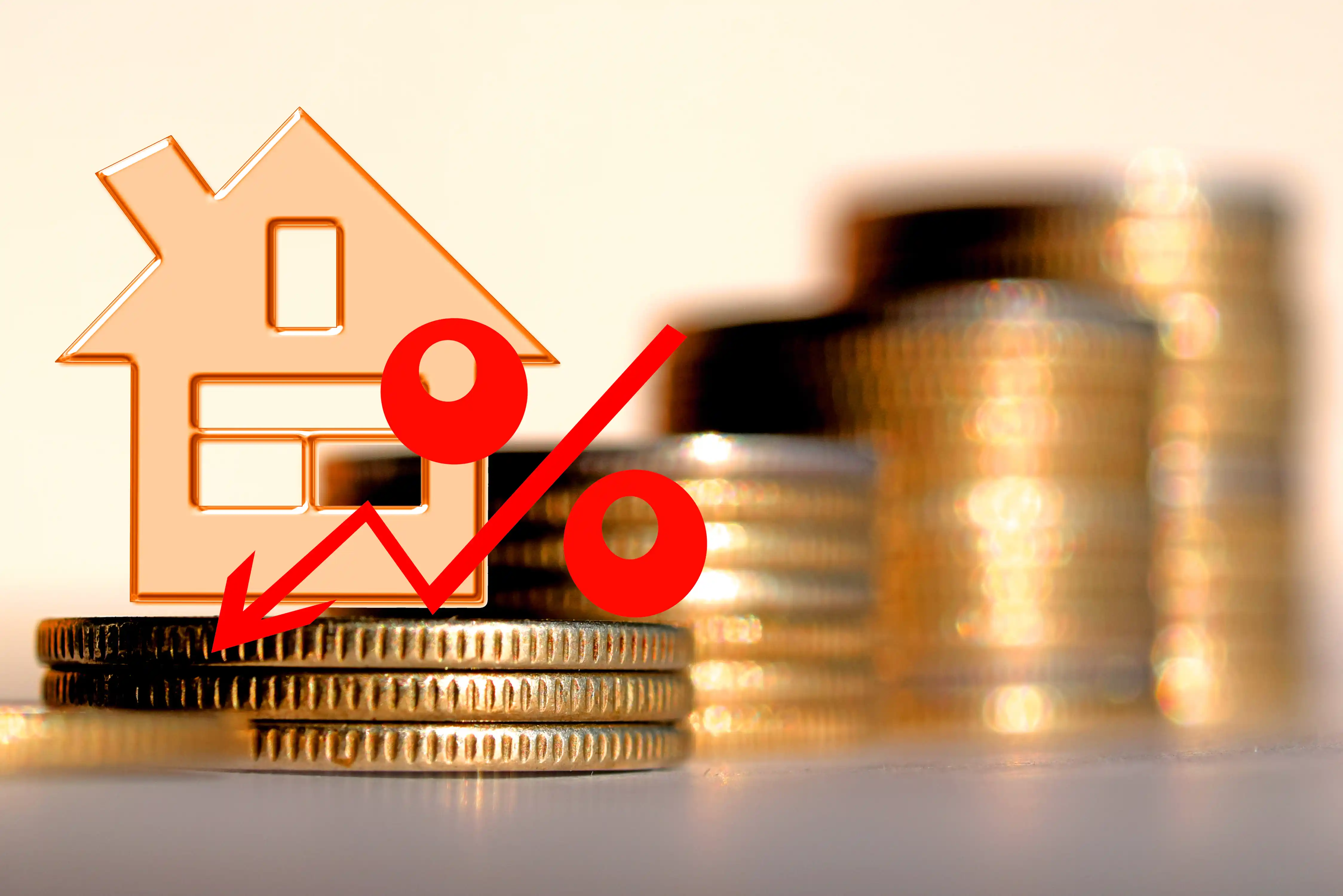 Shutterstock
ShutterstockThe Appeal of Owning Real Estate
Real estate has historically proven to be one of the safest investments one can make. Apart from rare exceptions, property values tend to rise consistently. Even better, they usually keep pace with or beat inflation.
With prices surging and no end to the hot market in sight, real estate is more appealing than ever from an investment standpoint. It is also an excellent hedge against the financial uncertainty that continues to define the COVID-19 economy.
Will The Bubble Burst?
Anytime real estate prices rise so much and so quickly, people begin to worry. “This cannot possibly be sustainable,” they think. “A correction must be coming.”
Experts have taken up the same debate. Some think the U.S. housing market is headed for an inevitable correction, or even a crash. Others are not so sure. Here are the supporting cases for each perspective.
The “Yes” Case
This viewpoint endorses the idea that real estate values have become what investors call “detached from reality.” It suggests that a frenzied buyer stampede has elevated prices beyond what the market can bear over the long term. Most observers agree with this notion, but there is another underlying factor that has some pessimists deeply concerned.
These concerns center around foreclosure moratoriums imposed during the early phases of the pandemic. They are due to expire imminently, and when the music stops, homeowners will have to pay up. Experts fear that many will not be able to meet their financial obligations, unleashing a tidal wave of foreclosures. This will shake the public’s confidence in the real estate market. Buyers will hesitate and prices will drop, perhaps very quickly and by steep percentages.
Similar principles apply to the interest rate situation. Many recent buyers are heavily leveraged into adjustable-rate mortgages and are already paying the maximum they can afford. This has happened as a natural consequence of buying in a seller’s market.
If and when interest rates rise, people with adjustable-rate mortgages will have to pay more to carry their properties. Many will not be able to absorb the increase, which could have a similar domino effect on the market. Some analysts believe this could lead to a potentially dramatic crash, turning the boom into a spectacular bust in record time.
The “No” Case
Other experts think the U.S. real estate market is unlikely to witness a sudden, dramatic decline in property values. They note that current conditions are much different than they were during the 2008 crisis. Unlike then, oversupply is not an issue right now. In fact, the situation now is quite the opposite. Financial institutions have also shored up their mortgage stress-testing standards, and they are now writing far fewer risky home loans.
Notably, even those in the “no” camp believe current price trends will not continue for the long term. Many also expect property values to fall a little bit as the boom declines from its peak. However, they generally predict far more moderate price drops than their more pessimistic counterparts.
 Shutterstock
ShutterstockLooking Ahead Into 2022 and Beyond?
No one knows for sure where the housing market is headed from here. That said, most insiders and analysts believe the mania is likely at or near its peak right about now. Economists generally believe surging prices will taper off in 2022. From there, the market will likely moderate. The real question is, “By how much?”
Again, predictions are impossible to make. No one knows the direction the COVID-19 pandemic will take. It also depends on if, when, and by how much central bankers choose to raise interest rates.
Should You Buy Now or Wait?
When real estate markets heat up like this, people often scramble to buy. In times of fast-rising home values, even a little bit of hesitation can result in prices quickly surging out of a buyer’s reach.
However, given the factors causing the surge, this is somewhat less likely to occur now than it was in 2020. Market craziness already appears to have gone about as far as it can. The general consensus forming among experts goes something like this: If you can wait for a year or more, you probably should. Sellers, meanwhile, may want to cash in while the buying frenzy continues.
The Bottom Line
COVID-19 is a truly unprecedented event. It has profoundly impacted the global economy in multiple ways. The current state of the U.S. real estate market is one of them. It has been a wild ride, but most observers believe it will not continue much longer. They expect property appreciation rates to slow down, and for sale prices to moderate. Whether or not they will crash is another question, and nobody knows the answer for sure.
Sellers would not be remiss to take advantage of current conditions in a bid to maximize their profits. However, buyers may be better off waiting on the sidelines until the volatility subsides. Interest rate hikes are looming on the horizon, and much better deals might be had a year or so down the road.
